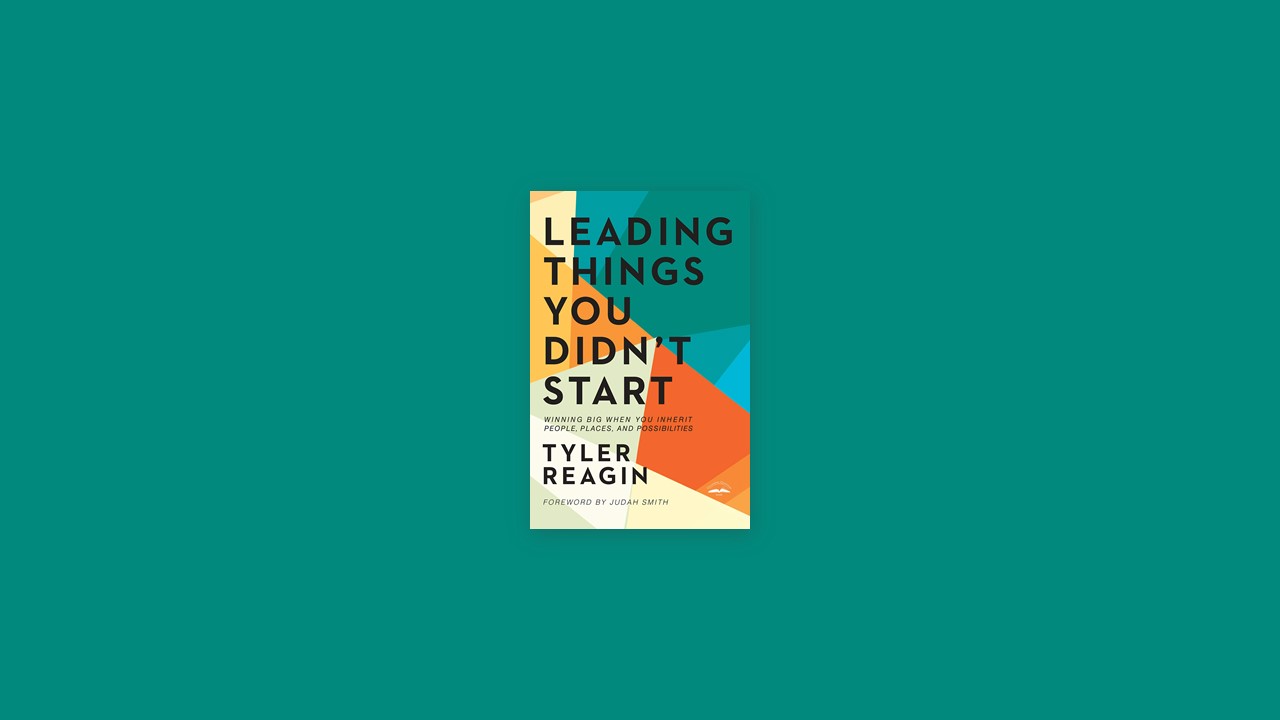Good Fruit
Are you stepping into a complete mess? Take good fruit.
Have you inherited a role from a leader who was beloved? Take good fruit.
You are responsible for you. Not what’s gone before. If you want to know where to start, show the fruit.
The truth is that often, as leaders or content creators, we feel the need to add more words, complexities, or principles. Which I’m about to do! However, it’s important to start here, with the amazing, time-tested, God-originated fruit of the Spirit.
Let’s build on a foundation that has eternal implications. Get in step with the Spirit, and hold on as we build something great in an inherited space. We can do this with God’s help!
The Five Ways to Honor the Past Without Getting Trapped by It
There are five areas that all leaders should focus on if they are to honor the past well and lead an inherited organization or team into the future with competence and strength.
#1. Celebrate Appropriately
Whether it’s good or bad, you have to honor it. Period. If you have any desire to rally a team or make them understand that you are for them, you first have to show that you know them. Where they’ve come from. Where they’ve been hurt. Where they’ve crushed it. It’s important to plan how you will honor the past—it can’t be ad lib. Celebrate all the good publicly. This needs to be sincere. However, it might take some manufactured energy since you know all the good and the bad. But you have to do it. To gain influence, pour life into the people by celebrating them well.
#2. Honor the Right Things
Leadership isn’t just what you do. It’s what you allow.
How true! This is one of the hardest parts of leadership in general, but it’s incredibly difficult when you are transitioning into a spot where leadership was lacking. If you celebrate the wrong parts of the past, you will potentially create a wrong impression of what you want winning to look like for the team. Does that make sense?
When and how you celebrate the past leaders and successes will create a baseline for what is going to be allowed and celebrated in the future.
#3. Shift Focus
come prepared to tilt shift. You focus on the main objective first while also determining the organizational items that need to be set aside or temporarily “blurred out.” A skilled tilt shift can be instrumental in your early success.
So here are some beginning questions:
- How strong is the team? For real.
- What financial situation are we in?
- What fires have to be put out?
- What fears and insecurities are floating around the team?
- What essential services are missing to keep us afloat or move us forward immediately?
- How’s the leadership? Board? Directors?
- Am I coming into a spot where I’m fresh air or replacing a beloved leader? (This honestly might be the simplest yet most important question to answer before you get started.)
If you can answer most of these questions before day one, you are well on your way to a strong starting baseline.
#4. Cast New Compelling Vision
If you can’t see what something looks like, even with an accurate description, it’s often difficult to get motivated or excited about it. This is absolutely the case when you enter an inherited situation. So many on your new team will not be able to see what you’re seeing down the road. It’s going to be of utmost importance that you learn the art of casting vision. In fact, not just vision but compelling vision! Even if it means hard work and difficult decisions.
A vision that moves people.
A vision that creates emotional buy-in.
A vision that makes them say, “Let’s go!”
# 5. Move on from Honoring
“Every scholar of the Scriptures, who is instructed in the ways of heaven’s kingdom realm, is like a wealthy home owner with his house filled with treasures both new and old. And he knows how and when to bring them out to show others.”
I love this passage. The owner knows how and when to bring out the treasures, both new and old. Leaders who can move into an existing team or organization and make it better than before have an understanding of this principle. Discernment about when to move on from the past and not feel the need to honor it anymore will be crucial in your journey. I’m not saying you will switch from honoring to dishonoring. Never. It’s just simply moving on. No more do we need to make sure the past gets its due. Instead, we move into the new season.
Evaluation Is Brutal but Necessary
Every great organization that lasts has learned the art of evaluation. You don’t get to be great without it. When you are leading something you didn’t start, you need a road map to figure out where you and the group are going. Without evaluation, you’ll never know how to hit your tee shot! If you don’t know what’s currently working, what’s failing, and what might be salvaged with proper focus, how will you ever know how to lead?
- What’s currently the best thing going for us?
- What are the obstacles that need to be removed?
- What’s worked in the past that no longer works as well now?
- What’s worked in the past that we need to go back to?
- How’s the team doing with the objectives?
- What’s missing that would equip the team to make better decisions?
- What are we afraid of?
- What are some “old couches” that are evident early on?
- What is the market saying about our product?
- Where can we find more information to solve a problem?
- What areas need change but something unspoken is going on with them?
- What are we best at?
- Where is it clear that we are struggling?
- What’s our target?
- What does the team think the target is?
- How do we know whether we are winning?
- What are the hills we will die on?
These questions are a starting spot, but you will have to figure out the relevant specifics. There’s no cookie-cutter formula for evaluating what you’ve inherited. I do know one thing: if you lead well in the beginning, the rest of your leadership will be so life giving that you and the team will never be the same!
Trust the Process: Seeds Don’t Grow Overnight
There is a massive difference between idleness and patience. Many leaders miss this important piece of the puzzle. Often when we are waiting, we will find ourselves idle. This doesn’t mean we can’t be doing something! It is just as important to keep planting new seeds as it is to wait for the growth from the first seeds.
We have to keep working and fertilizing even while we are waiting. It’s not time to sit on the bench and watch until something grows. We have to work and plant more seeds for the years to come.
Without acting like I know everything about farming, because clearly I do not, I do know how much preparation and work are required to grow even the simplest of crops:
- You have to know what and where to plant (Evaluation).
- You have to learn the timing for maximizing growth (Patience).
- You have to know how to harvest (Implementation).
- You have to care for the seeds while they are growing (Care).
Take your time, but don’t sit still. Look around and learn, but don’t be lazy. There’s too much at stake. Your faithfulness will be rewarded. It just might not be overnight.


